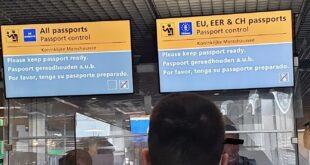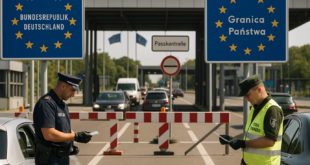The European Commission is seeking to better integrate migrants and Europeans with migrant backgrounds into larger society. The Commission, the executive branch of the European Union, unveiled its action plan on Integration and Inclusion for the period 2021-2027 on Tuesday (24 November).
The plan aims to promote inclusion for all, “recognising the important contribution of migrants to the EU and addressing the barriers that can hinder participation and inclusion of people with a migrant background, from newcomers to citizens, in European society”.
Based on the principle that inclusive integration requires efforts from both the person and the host community, the plan sets out new actions that build on the achievements of the previous action plan from 2016.
Vice-President for Promoting our European Way of Life, Margaritis Schinas, said: “Integration and inclusion policies are vital for newcomers, for local communities, and contribute to cohesive societies and strong economies. Everyone who has the right to be in Europe should have access to the tools they need to realise their full potential and assume the rights and obligations governing our Union.”
Commissioner for Home Affairs, Ylva Johansson, said: “Migrants are ‘us’, not ‘them’. Everyone has a role to play in making sure our societies are cohesive and prosperous. Integration and inclusion mean listening to migrant communities and ensuring that everyone can enjoy rights, regardless of background. Inclusive integration is giving the same tools and support needed to contribute to society, so that migrants can reach their full potential and our societies benefit from their strength and skills.”
The action plan proposes targeted actions to promote inclusive education and training, improve employment opportunities and skills recognition, and promote access to health services and affordable housing for migrants and citizens with foreign background.
Although national governments are primarily responsible for creating and implementing social policies, the EU plays a key role in supporting Member States through funding, developing guidance and fostering relevant partnerships.
“The action plan will be implemented by mobilising EU funding and by creating partnerships with all those involved: migrants, host communities, social and economic partners, civil society, local and regional authorities as well as the private sector. It will empower host communities and support their role in the design and implementation of integration measures and programmes, while also emphasising the responsibility of the people concerned in participating in the host society,” the Commission said.
About 34 million EU inhabitants were born outside the EU (around 8% of the EU population), and 10% of young people (15–34 years) born in the EU have at least one foreign-born parent. It’s a group that the Commission recognises as facing challenges in terms of access to education, employment, healthcare and social inclusion.
Sola Jolaoso
More information about the action plan HERE
 THE AFRICAN COURIER. Reporting Africa and its Diaspora! The African Courier is an international magazine published in Germany to report on Africa and the Diaspora African experience. The first issue of the bimonthly magazine appeared on the newsstands on 15 February 1998. The African Courier is a communication forum for European-African political, economic and cultural exchanges, and a voice for Africa in Europe.
THE AFRICAN COURIER. Reporting Africa and its Diaspora! The African Courier is an international magazine published in Germany to report on Africa and the Diaspora African experience. The first issue of the bimonthly magazine appeared on the newsstands on 15 February 1998. The African Courier is a communication forum for European-African political, economic and cultural exchanges, and a voice for Africa in Europe.

































